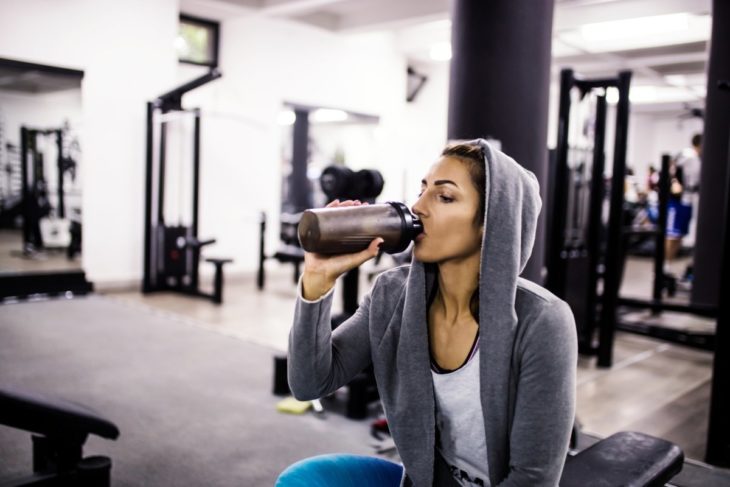When it comes to physical activity, it is already well-known that it helps us improve our health and physical capabilities at the same time. It helps us both look and feel younger, have more energy, and something that not a lot of people know, it improves our mood by helping the brain produce more serotonin, which is a hormone that’s responsible for how we feel at the moment.
However, in order for our exercising session to be successful, we need to be taking care of our diet as well. Our body needs proper “fuel” in order to have the required energy needed for the training session, but it also needs a post-workout remedy that is beneficial to recovery and healing. What kind of a post-workout remedy you might ask? Well, that’s every meal containing nice amounts of protein. Whether it is meat, eggs, a few scoops of whey protein, fish, nuts, milk, and a few other foods, the body needs at least some of these after a hard work-out session in order to fully recover.

Source: US News Health – US News & World Report
A lot of people think that progress happens during the workout session, but that’s not true at all. Our muscles grow while we’re resting, and when we provide them with the right nutrition that’s needed for proper recovery.
While we train, we’re tearing down our muscle tissue, and in order for that tissue to form back into a stronger and more physically capable muscle, we need to fuel our body with protein. The recommended dose of daily protein intake in grams is somewhat of 80g for males, and 50g for women, but this is for people that are not physically active. If you are someone who constantly engages in heavy physical activity, such as weightlifting, the recommended protein intake is much higher, and it is calculated using the following formula. Your entire body weight, minus the weight of your bones, multiplied by two, equals the amount of protein you should be consuming daily in order to achieve hypertrophy. For example, if you are a person that weighs 75kg, your bones weigh approximately 15, which means that we’re left with 60kg of weight, and when we multiply that by two, we get 120g of protein.
According to ProteinCountry, for more advanced athletes that are engaging in activities such as “cutting”, which is the process of eating in a caloric deficit but still training heavily, the protein intake can sometimes reach more extreme amounts, such as 200-300g daily, depending on how much muscle you want to preserve during your “cut”.

Source: Healthline
Without the adequate amount of protein, your body will be unable to fully recover for your next session, and your performance will be drastically reduced due to the pain that you’ll be feeling while performing each movement or repetition of a certain exercise. This means that your “gains” will also be negatively impacted, and your overall progress will be slowed down. If you really want to focus on becoming stronger and better in whatever physical activity you’re engaged, make sure that you eat enough protein.
